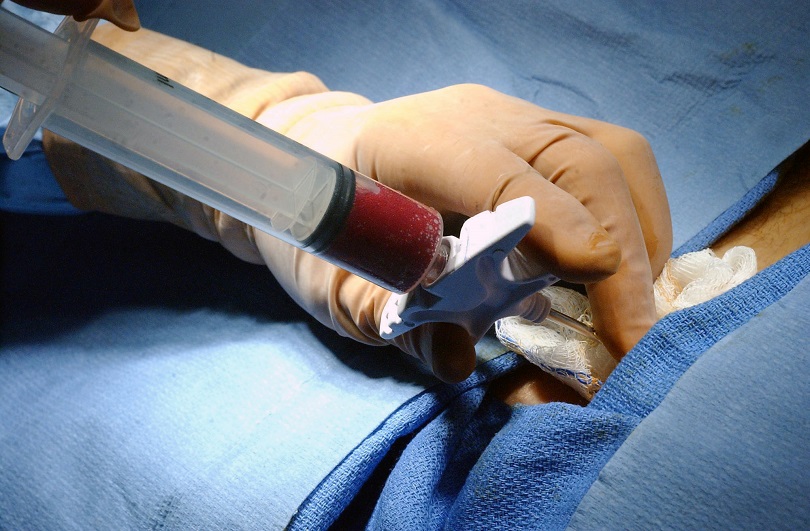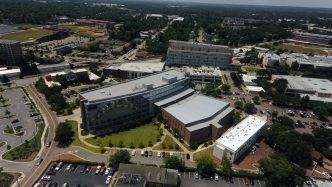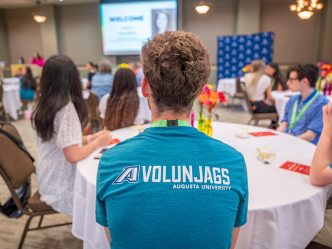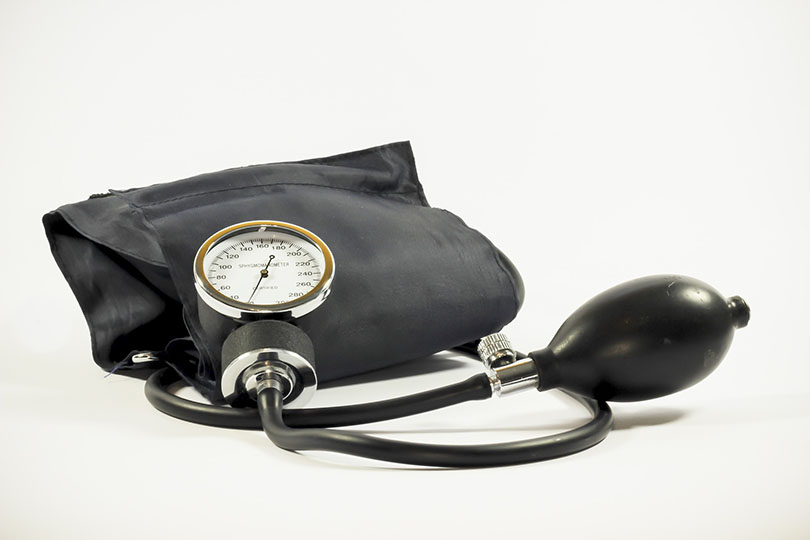Augusta University Medical Center’s Bone Marrow and Stem Cell Transplant Program has been re-accredited by the Foundation for the Accreditation of Cellular Therapy (FACT).
In 2017, the team of Dr. Jeremy Pantin, Dr. Locke Bryan and Dr. Claude Sportes performed 42 transplants. The process replaces stem cells in the bone marrow that were destroyed due to a person’s cancer or a blood disorder, such as leukemia or lymphoma. Augusta University Medical Center’s program is accredited for autologous, which is replacing a person’s cells using their own noncancerous cells, and allogeneic transplantation, which replaces a patient’s cells using cells from a different donor. The program is also accredited for its cellular therapy collection and processing.
“During an extensive on-site inspection, FACT looked at every aspect of our program. Inspectors reviewed our medical teams, quality, outcomes, policies and procedures and found that we meet their rigorous standards,” said Dr. Jeremy Pantin, interim director for the Bone Marrow Transplant program.
Augusta University’s Bone Marrow and Stem Cell Transplant Program received its initial FACT accreditation in 2009. The accreditation must be renewed every three years. According to the foundation’s website, FACT accreditation represents the highest level of excellence in cellular therapy including bone marrow or cord blood transplant. Members of the foundation visit the site of an accredited center every three years, to make sure those standards are continuously met.
“You have to demonstrate you have policies and procedures in place for safe and effective transplants,” Pantin said. “And after the transplant process, you must manage a patient’s health because the accreditation review process also looks at patient survival and outcome results at Day 100 and one year after transplant.”
Dr. Anand Jillella drove the creation of the program in 1997. Since its inception, it has provided treatment to more than 500 patients with leukemia, lymphoma or other blood-related cancers. It is the only such program outside of Atlanta and serves patients throughout the state.
“The growth and success of the program has been a major team effort. To continue to become fully accredited represents tremendous progress that will allow us to expand our program and help more patients,” Pantin said.
 Augusta University
Augusta University




